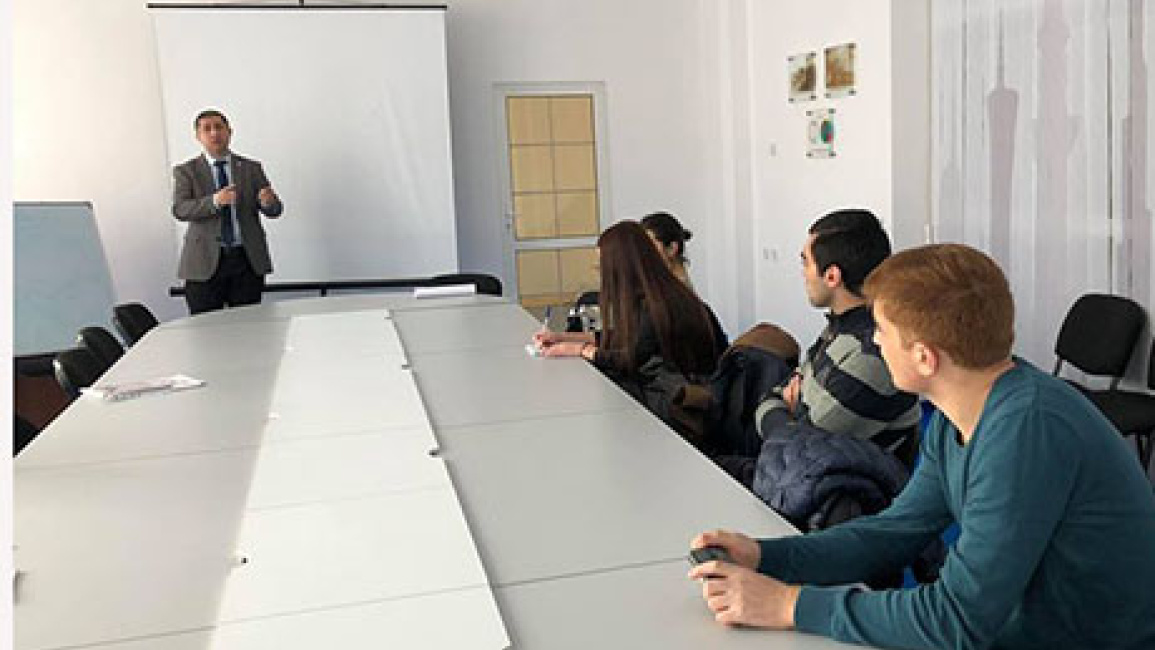- Main
- Node
- “RELATIONSHIP OF STATE AND THINK TANK CENTRES IS TO BE CLEAR AND STABLE”: VARDAN ATOYAN
December 10, 2018 | 14:50
Education
“RELATIONSHIP OF STATE AND THINK TANK CENTRES IS TO BE CLEAR AND STABLE”: VARDAN ATOYAN
The SSS of the Faculty of International Relations organized the lecture entitled “Think Tank centres in public policy” delivered by the senior expert- deputy director of the research centre “Amberd” of ASUE, Doctor of Political Sciences Vardan Atoyan.

Vardan Atoyan referred to the history of creation and stages of development of Think Tanks. “Think Tanks emerged from complication of international relations”, explains the expert- “In parallel with increasing number of countries domestic organizations appear which are not less influential than some countries. The institute of unanimous decision making was not effective anymore”.
According to the expert various organizations were established at that time which started being useful to states and decision makers. “Prototypes of think tanks were in Great Britain and in some countries of Latin America but as an institution it was established in the USA. The USA was very auspicious from this point of view as it adopted the policy of being a democratic country”.
One of the most important conditions is that a state creates a demand for the product which can be provided by Think Tanks. “In authoritative regimes the activity of Think Tanks is not effective as regime is a system of one-person decision making while the main activity of Think Tanks is expert research and consulting”, mentioned Vardan Atoyan.
In public policy Think Tanks carry out three main functions: analytical-research, educational and communicative. According to the expert, it is very important that the relationship between the state and Think Tanks be clear and stable. The state must do its best to support the activity of Think Tanks as they can have a strategic significance for providing the institutional activity.

